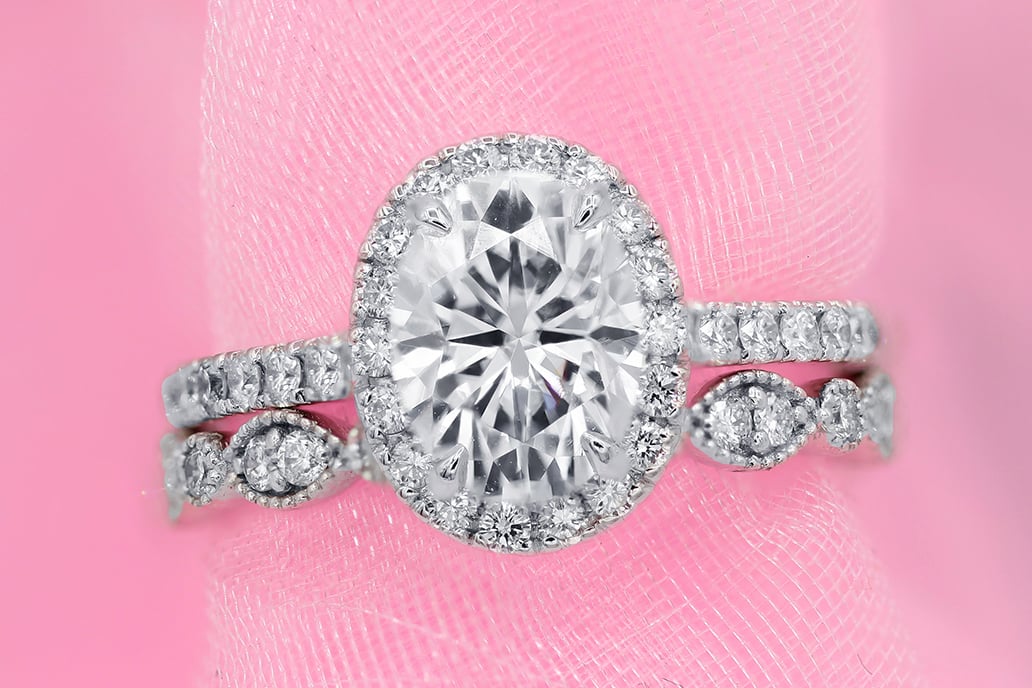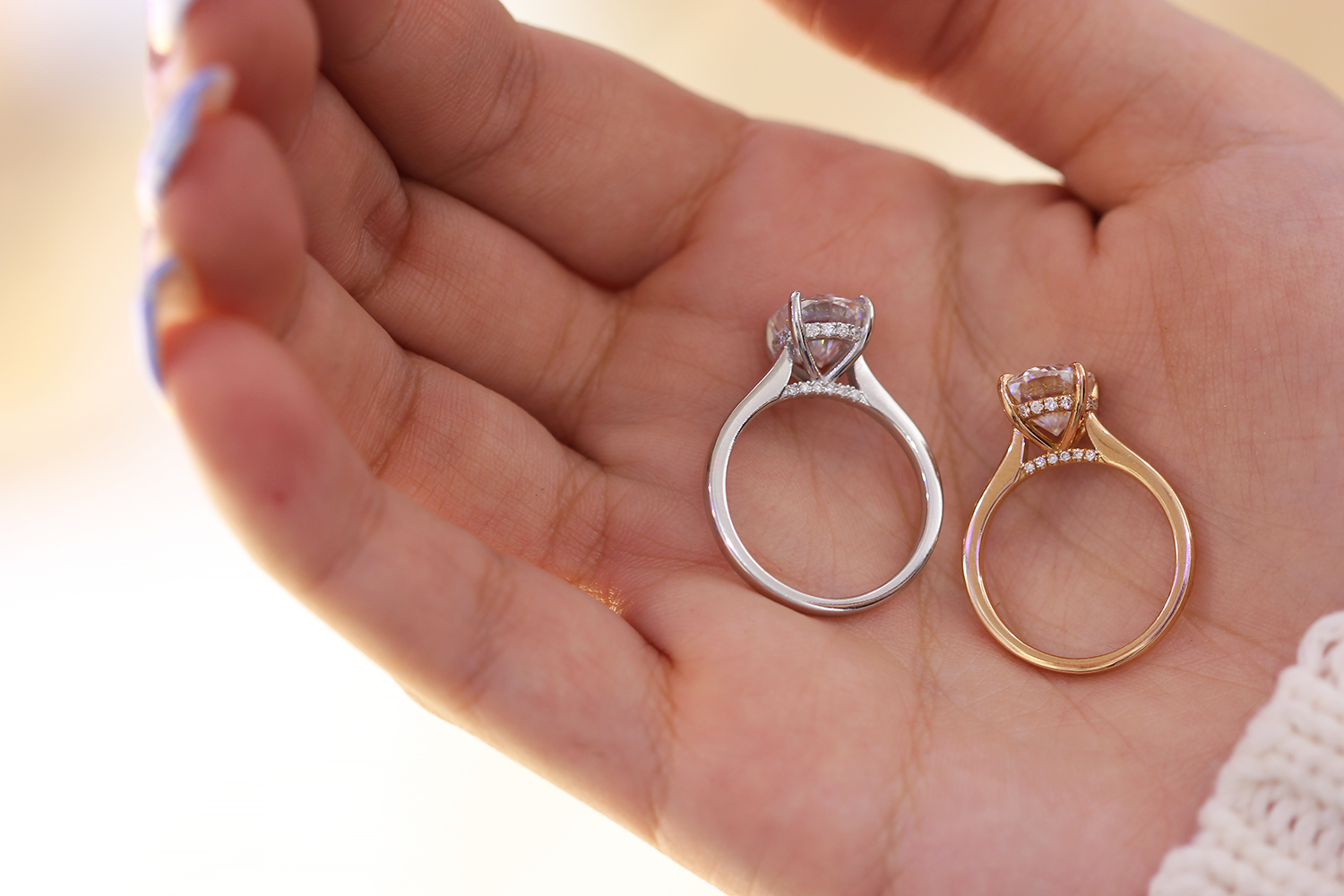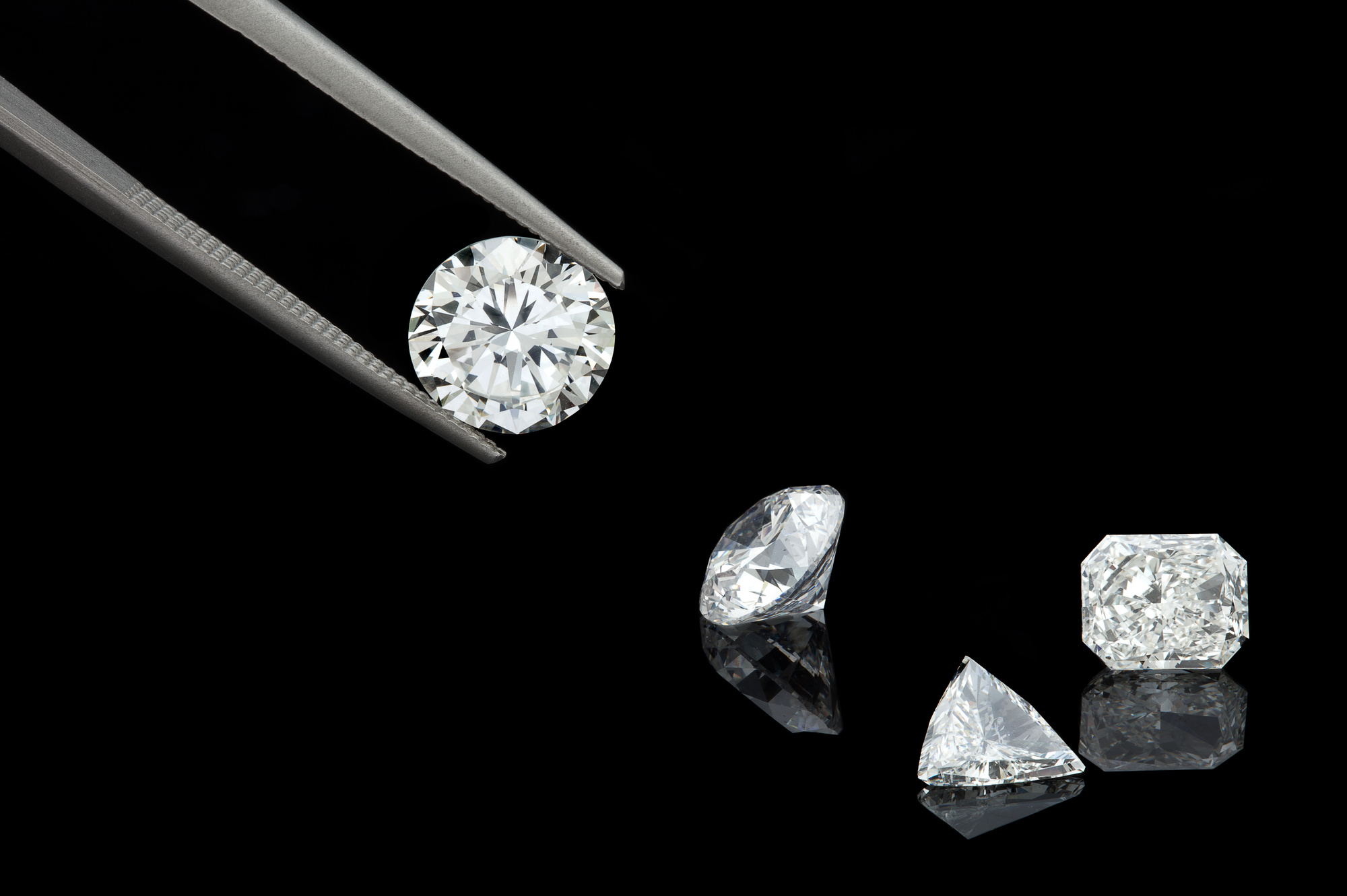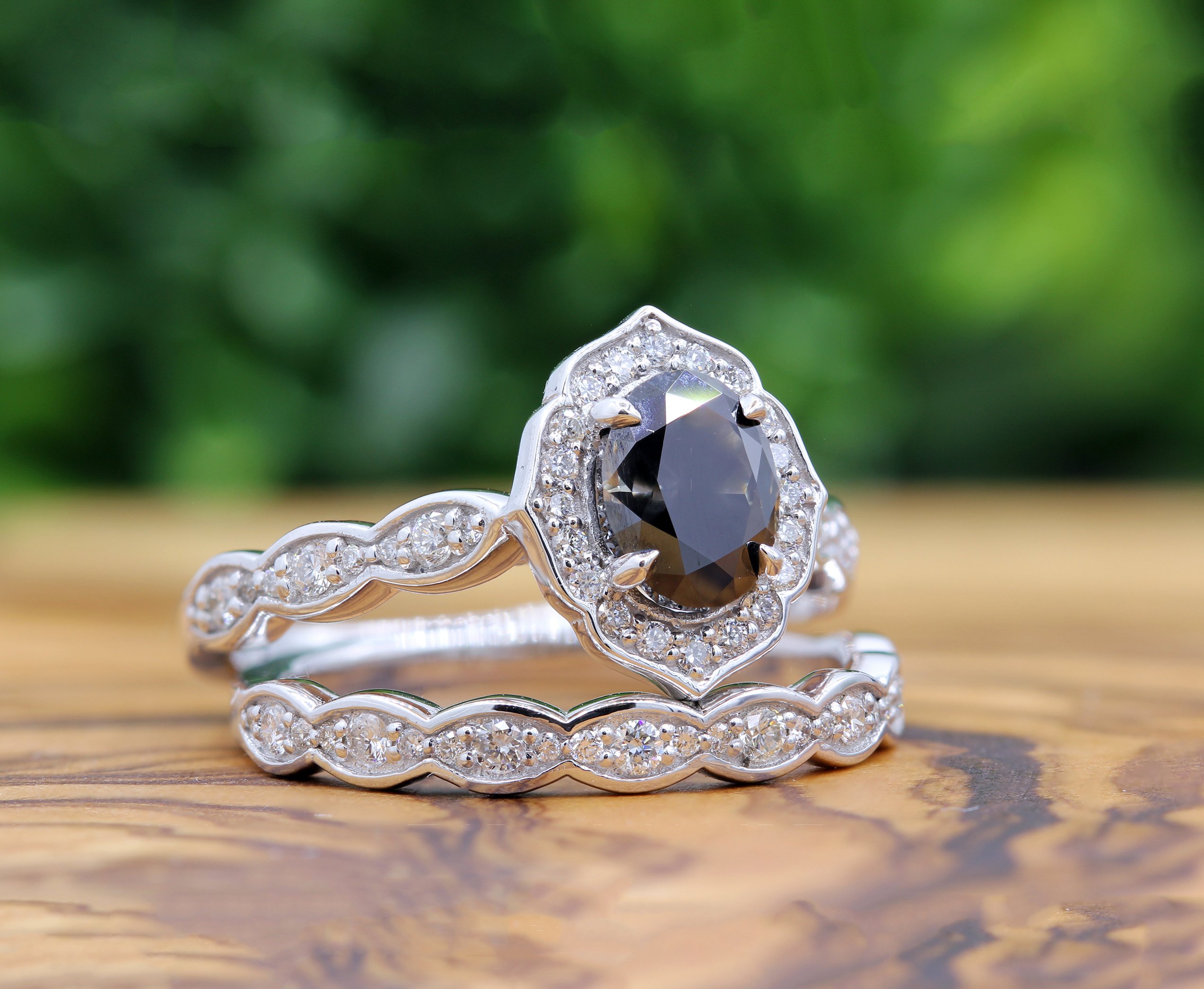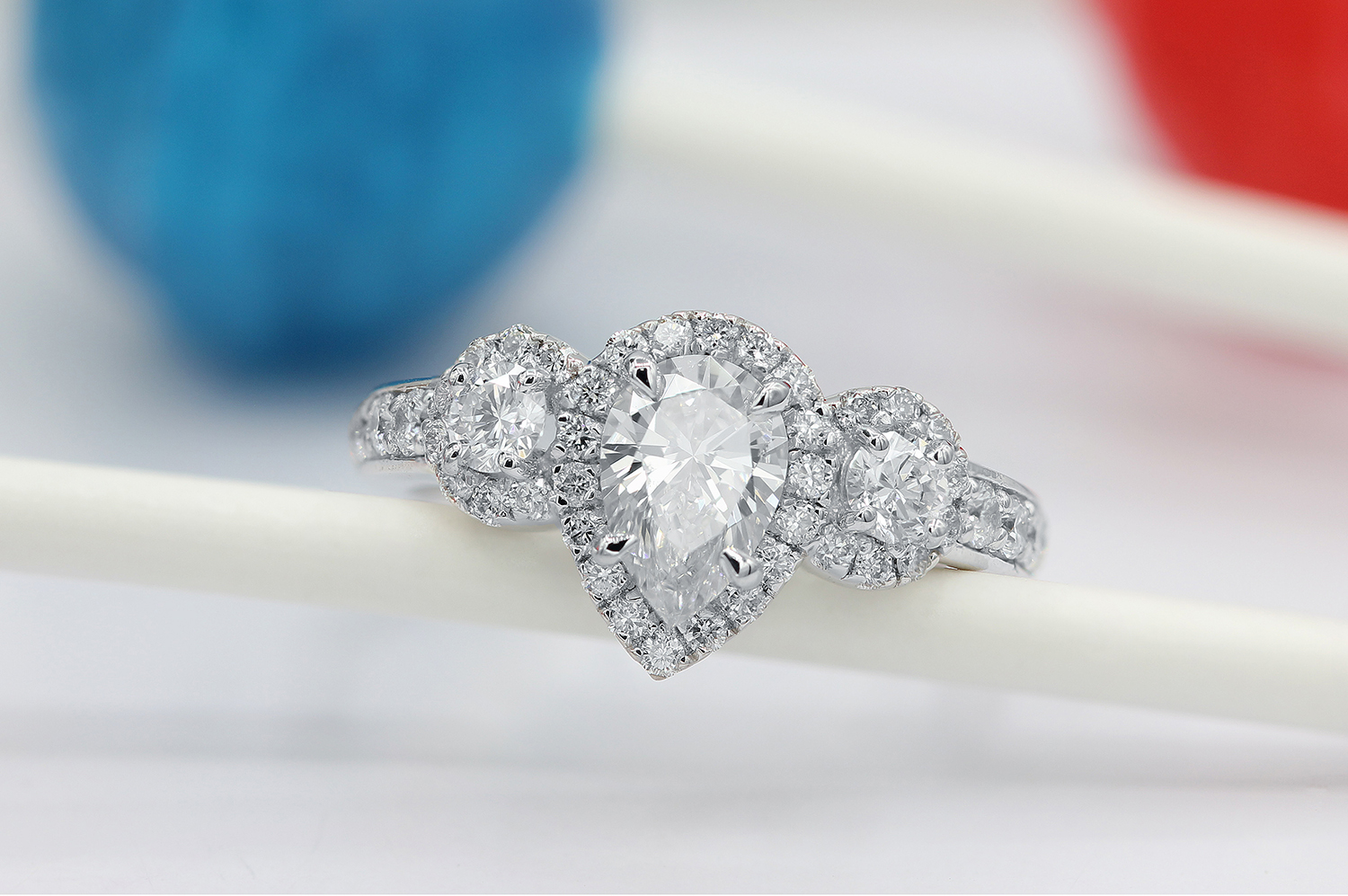7 Things You Should Know About Moissanite Engagement Rings
- Apr 16, 2021
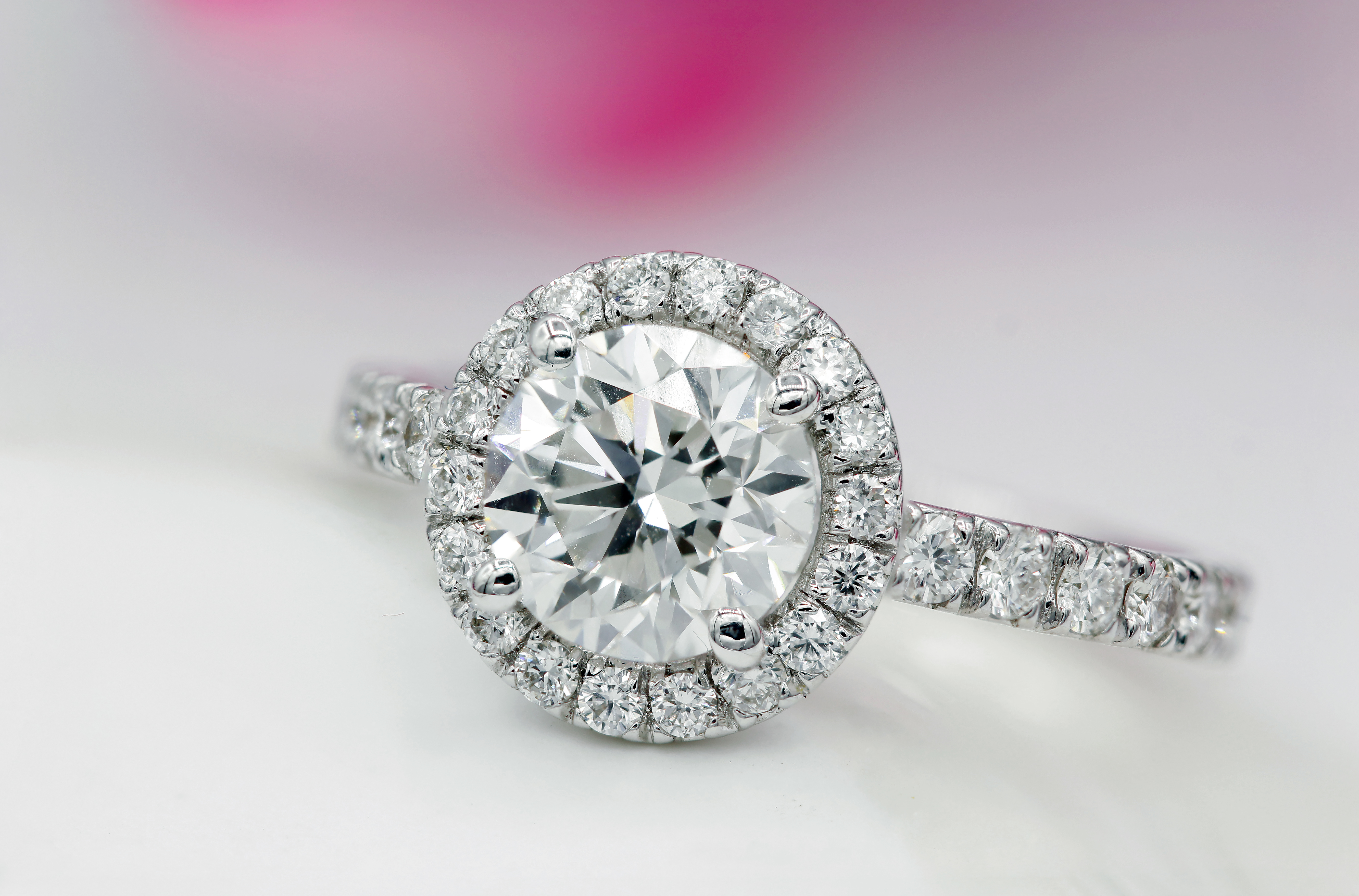
7 Things You Should Know About Moissanite Engagement Rings
Picking out an engagement ring is one of the most important decisions you will make. Here are 7 things you should know about moissanite engagement rings.
So you've met someone wonderful, dated, and you're finally ready to pop the question. Congratulations! Getting engaged is an exciting step, and of course, the moment wouldn't be complete without the perfect engagement ring.
But maybe you've been looking at diamond prices and not liked what you found. Maybe you're not comfortable with the violence in the diamond industry. Or maybe you don't want to follow the Hollywood convention that tells us engagement rings must be diamond.
No matter your reasons, if you're looking for alternatives to a diamond engagement ring, you should consider going with a moissanite ring. Below are seven things to know about moissanite engagement rings and why they outstrip diamonds in every way.
What is Moissanite
Moissanite is gemstone that was discovered in 1893 by one Henry Moissan. It was found near a meteor crater, and it quite literally comes from the stars. It is the most brilliant, and among the rarest gemstones to occur in nature.
Luckily, in the late 1990s, the process of producing moissanite in a lab was perfected. Manmade moissanite today is indistinguishable from naturally occurring moissanite. Although it is created in a lab, synthetic moissanite is still produced under the same conditions as would create it among the stars.
Very Durable
One of the main attractions of diamond engagement rings is the durability of diamonds. Diamond is the hardest substance known to man, but moissanite is not far behind in that regard. In fact, moissanite comes with a lifetime guarantee and one that is well-earned.
Moissanite can withstand temperatures up to 2000 degrees Fahrenheit. It has been used in bulletproof armor that could withstand more than 40 rounds of ammunition or a grenade going off nearby. And it is used in satellites, bringing its life cycle full circle.
Greater Brilliance and Fire
Diamonds also get good press for their brilliance and the "fire" they seem to cast when placed under direct light. But next to moissanite, diamond is a complete wallflower. Moissanite is far and away the most brilliant gemstone available on the market.
In the gemstone industry, brilliance ranks on a "brilliance refraction index" (RI). Diamond generally has an RI of 2.42 and a fire dispersion of 0.044. Moissanite can rate up to a 2.69 RI and generally has a fire dispersion of 0.104.
Less Expensive
There's no way around it: diamonds are expensive. On average, a one-carat diamond can cost between $3,000 and $26,000. The price depends on other factors such as color, cut, and clarity, and it can be too expensive for most people.
If you aren't excited about spending a quarter or more of your annual salary on a ring, moissanite may be the answer. A comparable one-carat moissanite stone can cost between $250 and $600. Imagine taking all those extra thousands of dollars and putting them towards your honeymoon or your first house.
Ethically Produced
As it happens, there's another huge cost to buying a diamond besides the dollar amount. Pound for pound, the diamond industry is one of the bloodiest in the world. Children labor in mines trying to find enough diamonds to feed their families, and diamond trade helps fuel furious conflicts worldwide.
Moissanite, on the other hand, is completely traceable and is ethically produced. Because moissanite is grown in a lab, it does not involve the near-slave labor the diamond industry does, nor does it fuel conflicts. It is also completely environmentally friendly.
Nearly as Hard as Diamond
As we mentioned earlier, moissanite is second to diamond only in terms of hardness. In the gemstone industry, hardness is measured on the Mohs scale. This scale runs from 1-10, with diamond setting the bar at 10.
But moissanite is, for all practical purposes, nearly as hard as diamond. On the Mohs scale, moissanite ranks between 9.25 and 9.5. Its toughness is rated as excellent, meaning your moissanite will not be showing wear anytime soon.
Lifetime Guarantee
Because of that toughness, moissanite generally comes with a lifetime guarantee. While this covers any scratches or other damage (unlikely though that may be), it does not only pertain to hardness. That guarantee also covers color and any other imperfections that may show up in your moissanite over time.
Some larger moissanite stones have been known to show a little bit of color with age. There are new lab-grown moissanite stones in production that do not have these issues, and even the stones that are affected are covered. If you ever become unhappy with the state of your stone, take it back to the jeweler and have it replaced.
Picking Moissanite Engagement Rings
A lot of times, people who get non-diamond engagement rings are looked down upon for not getting the "real thing." But with moissanite engagement rings, you can be certain that you aren't settling. Your engagement ring will be every bit as brilliant as the day you bought it for the rest of your life.
You can also rest assured that you will have a more beautiful engagement ring for choosing moissanite. People will comment on the sparkle and wonderful color of the ring without ever realizing the truth: diamonds, in fact, aren't a girl's best friend.
If you'd like to start picking your perfect moissanite engagement ring today, visit the rest of our site at Alexander Sparks. We have a variety of preset moissanite engagement rings, as well as moissanite stones you can have added to a custom setting. Get in touch with us today to start designing the engagement ring of your dreams.



